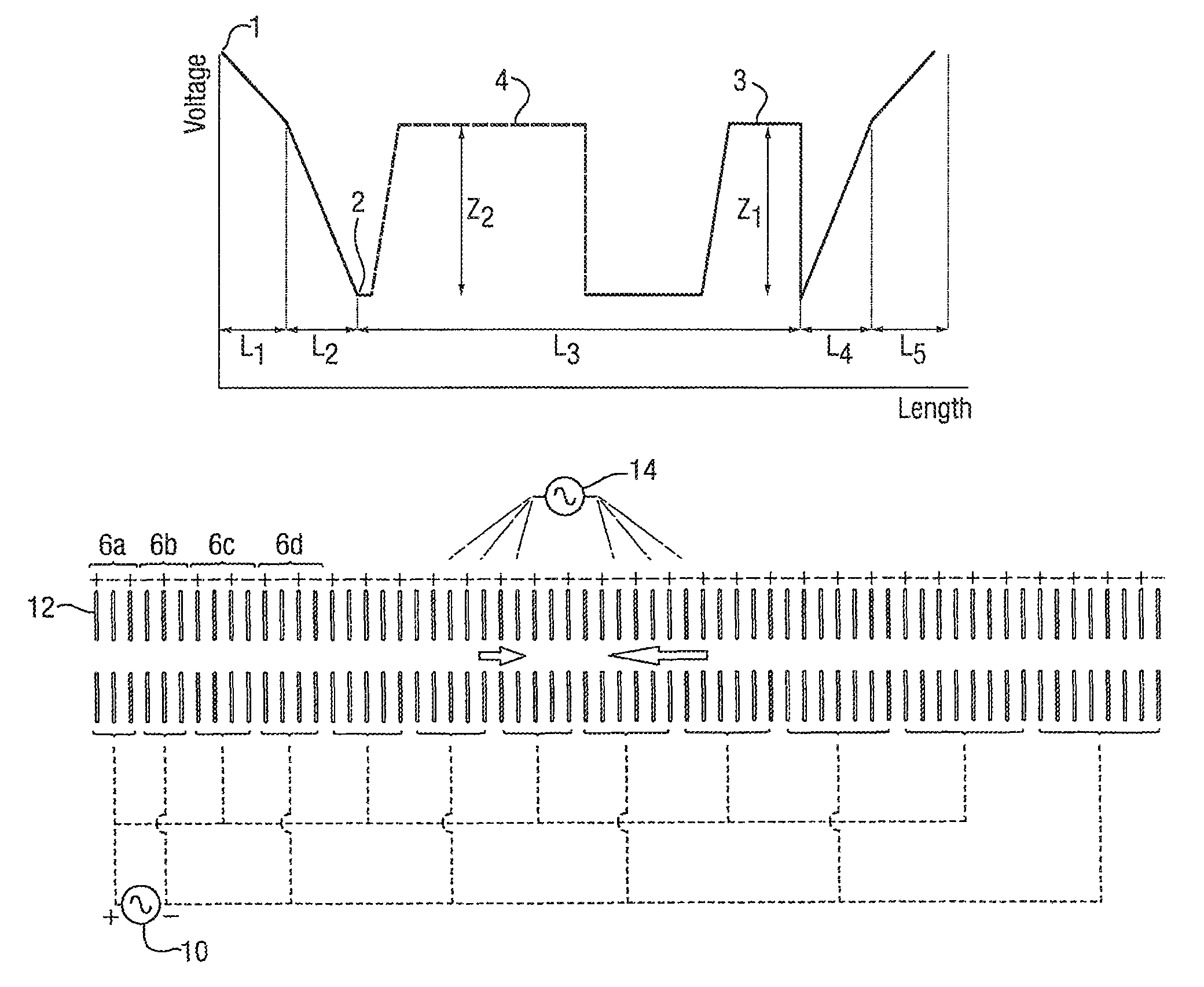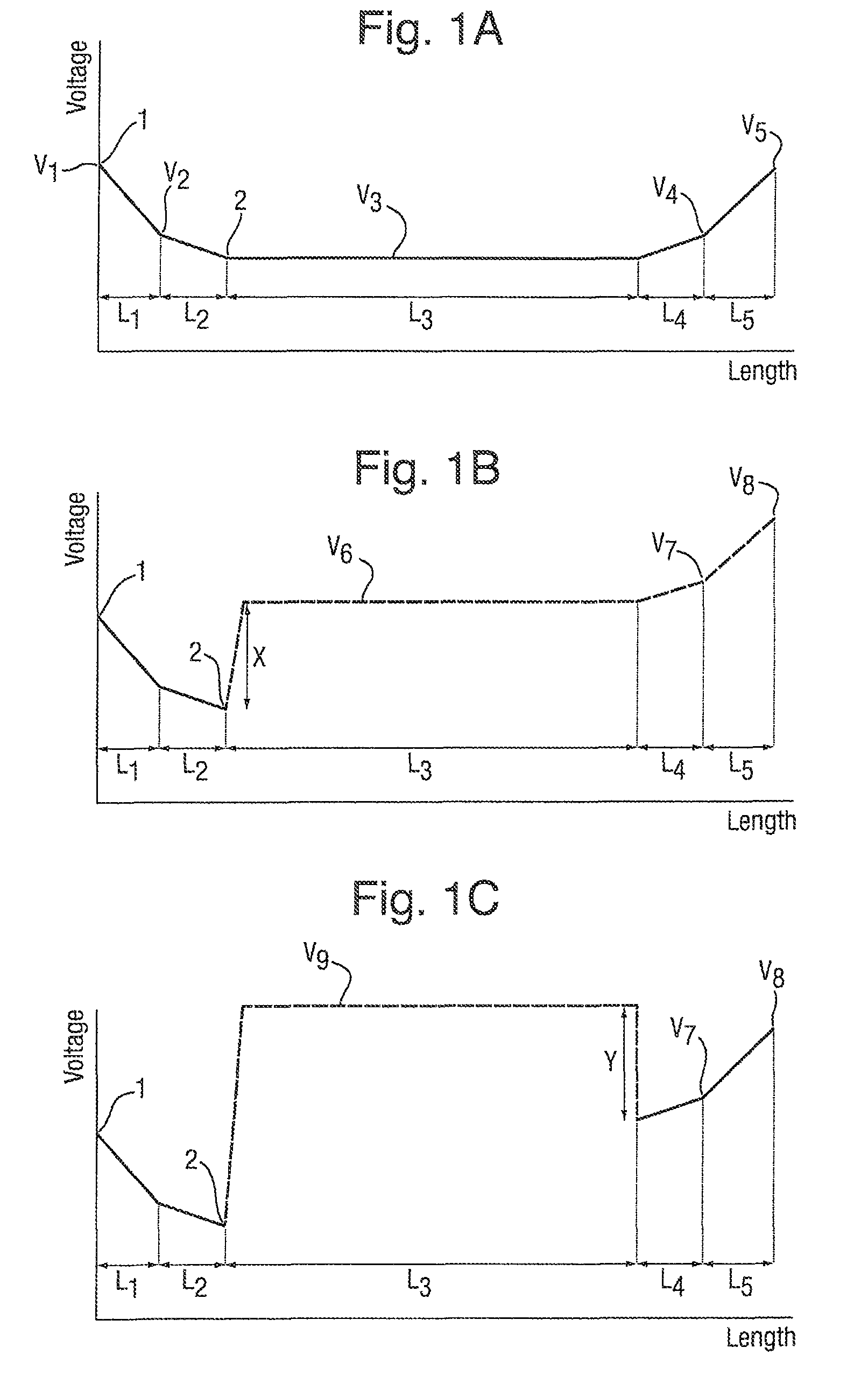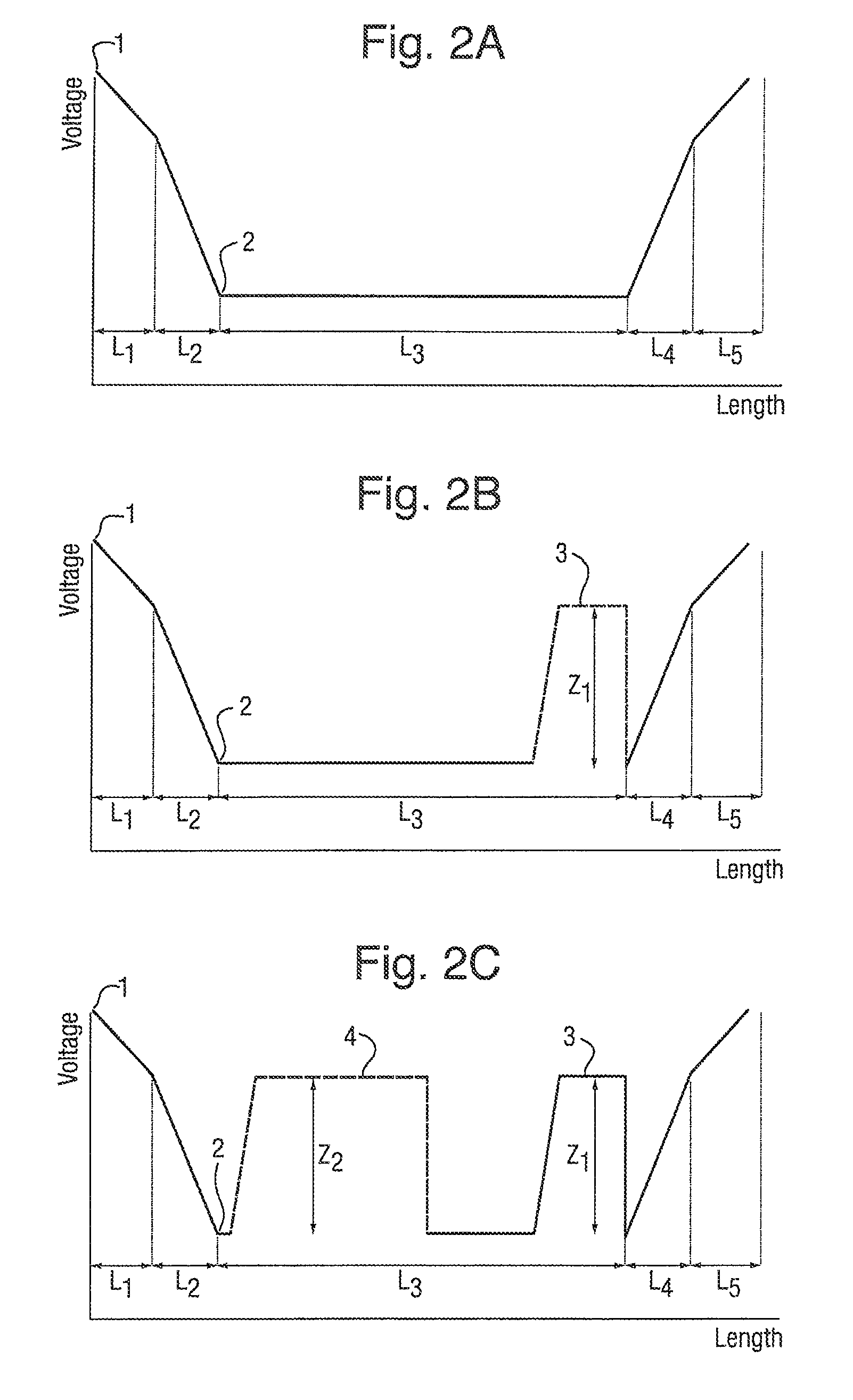Mass spectrometers comprising accelerator devices
a mass spectrometer and accelerator technology, applied in the field of mass spectrometer and mass spectrometry, can solve the problems of poor detector efficiency, high-speed state-of-the-art tof system recording electronics operation, and may also become a dominant problem, so as to increase the energy of ions incident on the detector, increase the efficiency of ion detection, and increase the effect of energy
- Summary
- Abstract
- Description
- Claims
- Application Information
AI Technical Summary
Benefits of technology
Problems solved by technology
Method used
Image
Examples
Embodiment Construction
[0093]A time of flight (TOF) mass spectrometer operating in positive ion mode and having a two stage acceleration region and a two stage reflectron or ion mirror will now be described. However, it is also contemplated that the present invention may be applied to negative ion operation and to many other geometries of instrument.
[0094]FIG. 1A shows a potential energy diagram of an orthogonal acceleration reflection TOF mass analyzer when being operated in a conventional manner. The diagram represents the relative potentials applied to the fixed electrodes within the TOE mass analyser. The potentials applied to the electrodes in FIG. 1A and the distance between these electrodes are as follows:
V1=2322.2 V
V2=0 V
V3=−627.8 V
V4=1641.2 V
V5=2322.2 V
L1=2.7 mm
L2=18 mm
L3=711 mm
L4=112 mm
L5=56.9 mm
[0095]This geometry provides third order spatial focusing for a 1 mm wide beam of ions, resulting in a theoretical mass resolution of approximately 30,000 FWHM.
[0096]The operation of the mass analyser wi...
PUM
 Login to View More
Login to View More Abstract
Description
Claims
Application Information
 Login to View More
Login to View More - R&D
- Intellectual Property
- Life Sciences
- Materials
- Tech Scout
- Unparalleled Data Quality
- Higher Quality Content
- 60% Fewer Hallucinations
Browse by: Latest US Patents, China's latest patents, Technical Efficacy Thesaurus, Application Domain, Technology Topic, Popular Technical Reports.
© 2025 PatSnap. All rights reserved.Legal|Privacy policy|Modern Slavery Act Transparency Statement|Sitemap|About US| Contact US: help@patsnap.com



